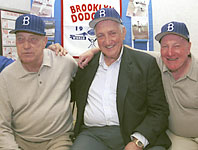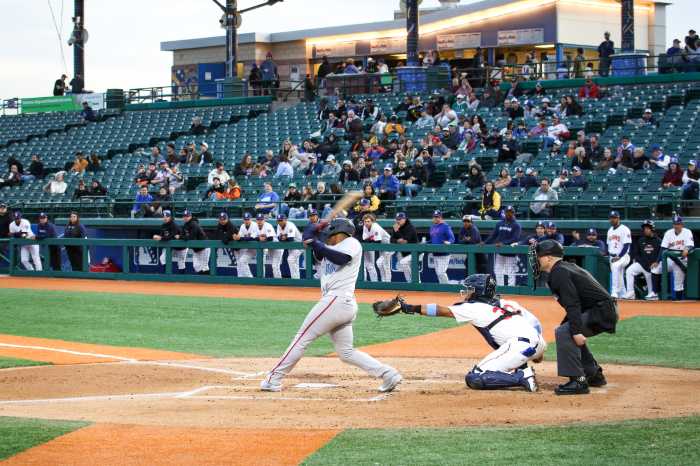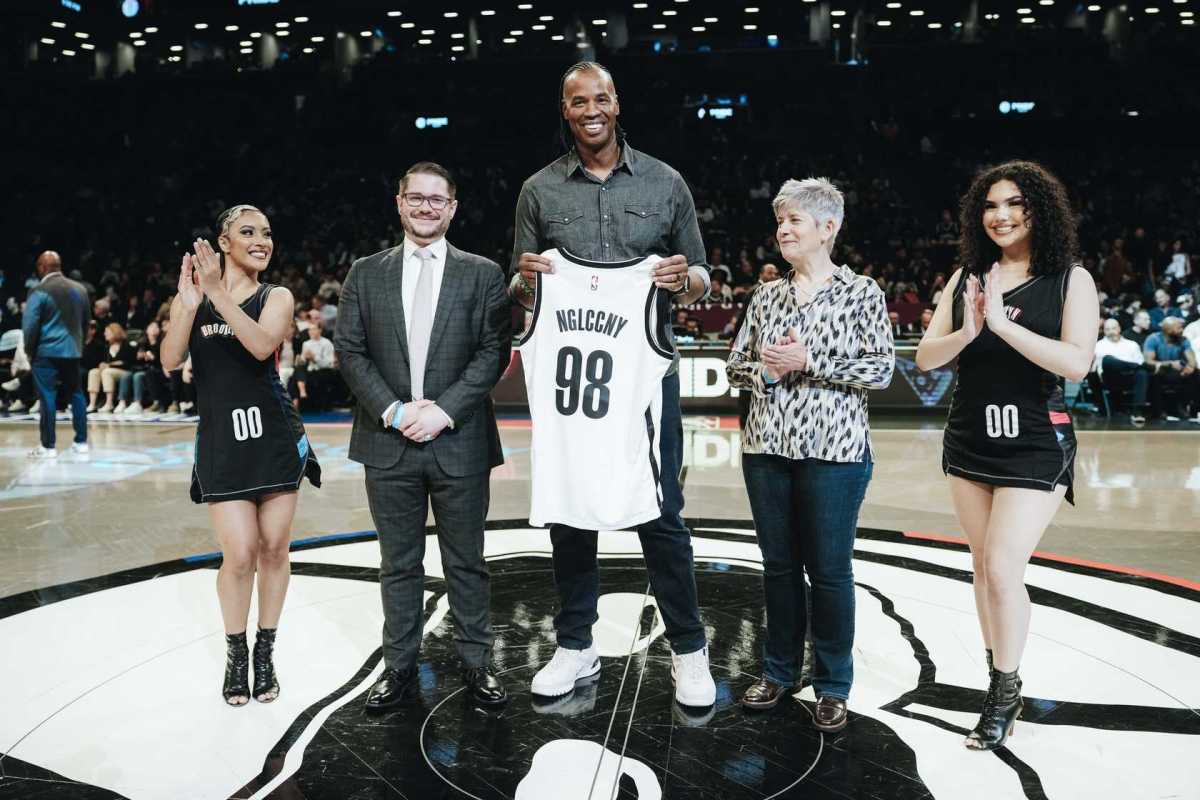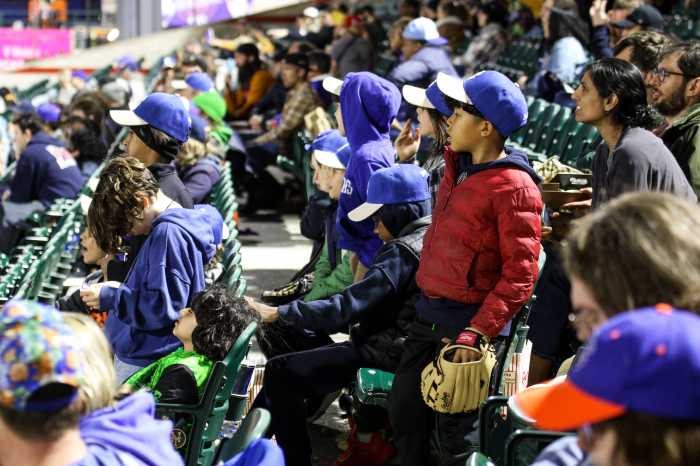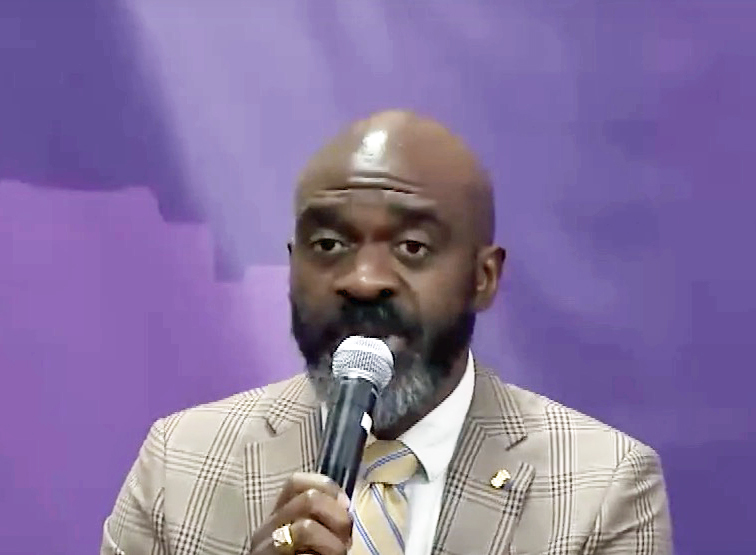On Saturday, Oct. 1, 1955 the Brooklyn Dodgers were at Ebbets Field trying to stay alive in the World Series.
Half a century later, keepers of the flame fanned the embers of the memories of Brooklyn’s first and only World Series triumph.
Fifty years ago, Johnny Podres had a day off. The day before, his 23rd birthday, the left-hander had pitched the Dodgers to victory against the Yankees in Ebbets Field, throwing a seven-hitter.
While Podres rested, Dodger teammates Duke Snider, Roy Campanella, and Gil Hodges blasted homers and Clem Labine won in relief as Brooklyn beat the Yankees 8-5.
This Oct. 1, Podres was back in Brooklyn, in Bensonhurst at the Ridgewood Savings Bank on 13th Avenue, greeting fans and signing autographs.
Podres’ teammates this time around in Bensonhurst were Bay Ridge’s Joe Pignatano, who joined the Dodgers in 1957, and Ralph Branca who pitched for the Dodgers from 1944 through 1953, and again, for one game, in 1956.
In 1955, Ebbets Field was packed with 36,242 fans for Game Four, and 50 years later, the Ridgewood Savings Bank was also packed, with hundreds of fans moving through a line that lasted for over two hours.
The bank provided free photos for the fans, plus free egg creams and soft pretzels. The fans arrived with Brooklyn Dodger caps, jackets, and old programs and yearbooks, and plenty of memories.
At a break in the proceedings, the three former Dodgers shared their thoughts with the media.
“The Brooklyn fans were the most knowledgeable,” said Pignatano.
Branca agreed, using as an example the way the Brooklyn fans treated Stan “The Man” Musial, the St. Louis Cardinals star who received his nickname from Dodger fans for his great slugging in Ebbets Field.
“They probably gave more standing ovations to Musial than to the whole Dodger team,” explained Branca. “They appreciated great play.”
Later on the afternoon of this Oct. 1, Dave Anderson, a Pulitzer Prize-winning sports writer for the New York Times, spoke at the Grand Army Plaza branch of the Brooklyn Public Library on the first day of a two-day program celebrating the Brooklyn Dodgers’ 1955 World Series win.
When Anderson, who covered the Dodgers for the Brooklyn Eagle, spoke of Jackie Robinson, he called him, “the best baseball player that I ever saw.”
“Certainly he didn’t hit as many home runs as Henry Aaron, or Barry Bonds or Mickey Mantle, but if you were choosing up sides in a playground game and you could have your pick of any guy who ever played baseball, I would pick Jackie Robinson because somehow he would find a way to win the game — whether by home run, a great catch, base-running, or by just inspiring his teammates.”
Anderson also praised another Dodger — Gil Hodges.
“Hodges epitomizes what a Hall of Famer should be. He was not only a great player, but also a great person and a great manager.
“It’s a crime he’s not in the Hall of Fame.”
Tom Oliphant, author of the book Praying For Gil Hodges, followed Anderson as a speaker.
Oliphant focused his talk upon Game Four of the 1955 Series.
“The Dodgers had come back from being down 2-0 in games and won 8-3 behind this kid pitcher from upstate [Podres],” said Oliphant. “We knew the history of the World Series, and like many normal Americans of the time, we knew more about defeat than about victory. I really didn’t know what hope was and what victory was.
“The idea that you could hope made no sense to nine-year-old me. At that point, no team had ever come back from a 2-0 deficit in games to win the World Series.
“The Dodgers were down by two runs in the home fourth and my mother’s favorite Dodger, Roy Campanella was up, and Campanella got a fat pitch from Larsen and hit it into the left field seats. Furillo got a wonderfully cheap hit for a single, and that brought up my favorite Dodger — Gil Hodges.
“You had this quiet feeling of confidence about Gil Hodges, and he stepped into an outside pitch and hit it over the right-center field wall, and in a game that could make the difference, my hero had hit a home run and put the Dodgers ahead.”
The Dodgers had lost five World Series to the Yankees between 1941 and 1953, and on three occasions in that time period they had lost the pennant on the last day of the season. Oliphant felt that all those heart-breaking losses had affected the Dodgers’ psyche.
“Vince Scully [long-time Brooklyn and Los Angeles Dodger announcer] told me that there was no question that the history of the team, the lore going back to 1941, had affected the team, the looking over your shoulder, always expecting the anvil to fall on your head,” said Oliphant.
“But having so many kids on the team helped because they didn’t have memories of so many close losses.”
Oliphant made the point that even in the moment of the Dodgers’ greatest triumph, the seeds of their move to Los Angeles were already being sown.
“In August of 1955, O’Malley announced that the Dodgers would play seven league games in Jersey City the next year,” said the author.
“O’Malley was quite open about his desire to have a new stadium when he said they would have a new stadium here [Brooklyn] or somewhere else.
“While the 1955 Series was going on, there were people from Los Angeles staying in the Waldorf-Astoria trying to see O’Malley. They didn’t see him then, but there were already harbingers of the move in the air.”
Oliphant attended the weekend celebration in August that the Los Angeles Dodgers hosted for the 11 surviving members of the 1955 champions, but he felt more could have been done for the anniversary of the World Championship.
“There should be a parade on [Oct. 4], there should be so many things, and I think on both coasts, we could have done a little bit better, especially for such an important memory.”
While the was no parade in Brooklyn on Oct. 4 of this year, there was a small gathering on the sidewalk outside where Ebbets Field used to stand.
Ten people, including myself, were at the former site of Ebbets Field at 3:43 pm, 50 years to the minute from when the Brooklyn Dodgers won their only World Series. All of the attendees came alone or in pairs, unaware of who else might attend.
The group, ranging in age from 20s to 60s, gathered behind where home plate used to be. There were no speeches, just a sharing of memories from those who remembered.
Julian Stone, a screenwriter from Southern California was there, having flown to New York to attend the events at the library and to research a novel he is writing about Brooklyn baseball.
The youngest person in attendance was Patrick Walter, 21, from Germany, who is staying in Forest Hills, Queens.
Harry Kuhn, former Brooklynite now from South Plainfield, NJ, was there in his Duke Snider jersey. Parked on the corner was his car with the license plate reading “Bklyn 55”.
Why are the Dodgers, and their championship, remembered by so many 50 years afterwards?
Tom Oliphant summed up his talk by quoting from his book. Oliphant had been interviewing Johnny Podres for the better part of two days, and when he was leaving Podres’ house, Oliphant asked him why the Dodger championship is so remembered. Podres eloquently answered:
“One thing you have to keep in mind is that that day can never happen again. There will be other great seventh games. Someday, someone will pitch another perfect game in the World Series, somebody will make another unassisted triple play, someone will hit a home run to win it all in extra innings. But the Brooklyn Dodgers will never win another championship. They are gone. The events of that day are frozen forever.”
October 15, 2005 issue


